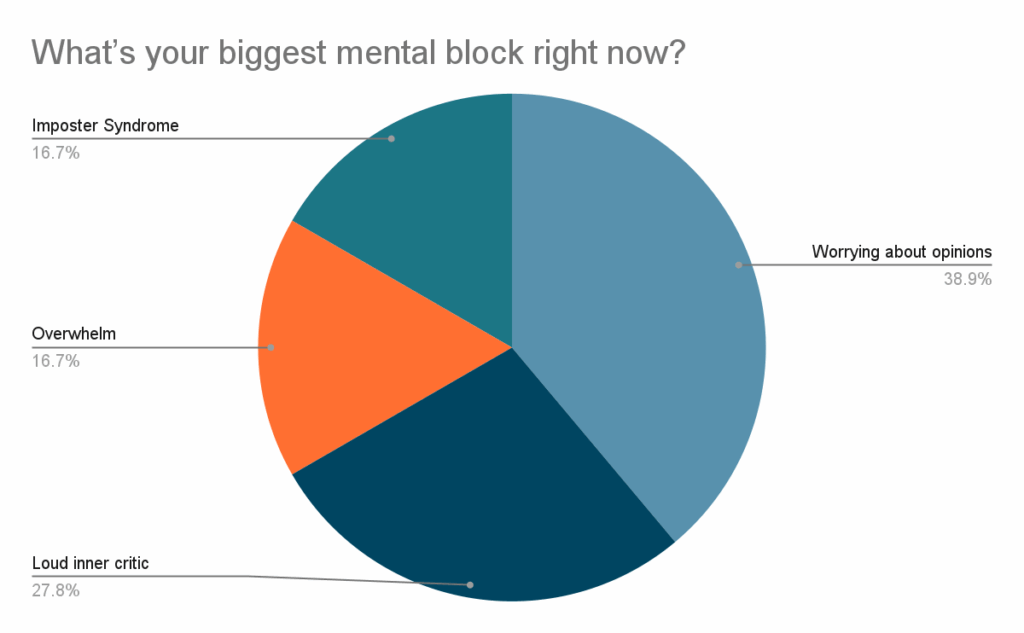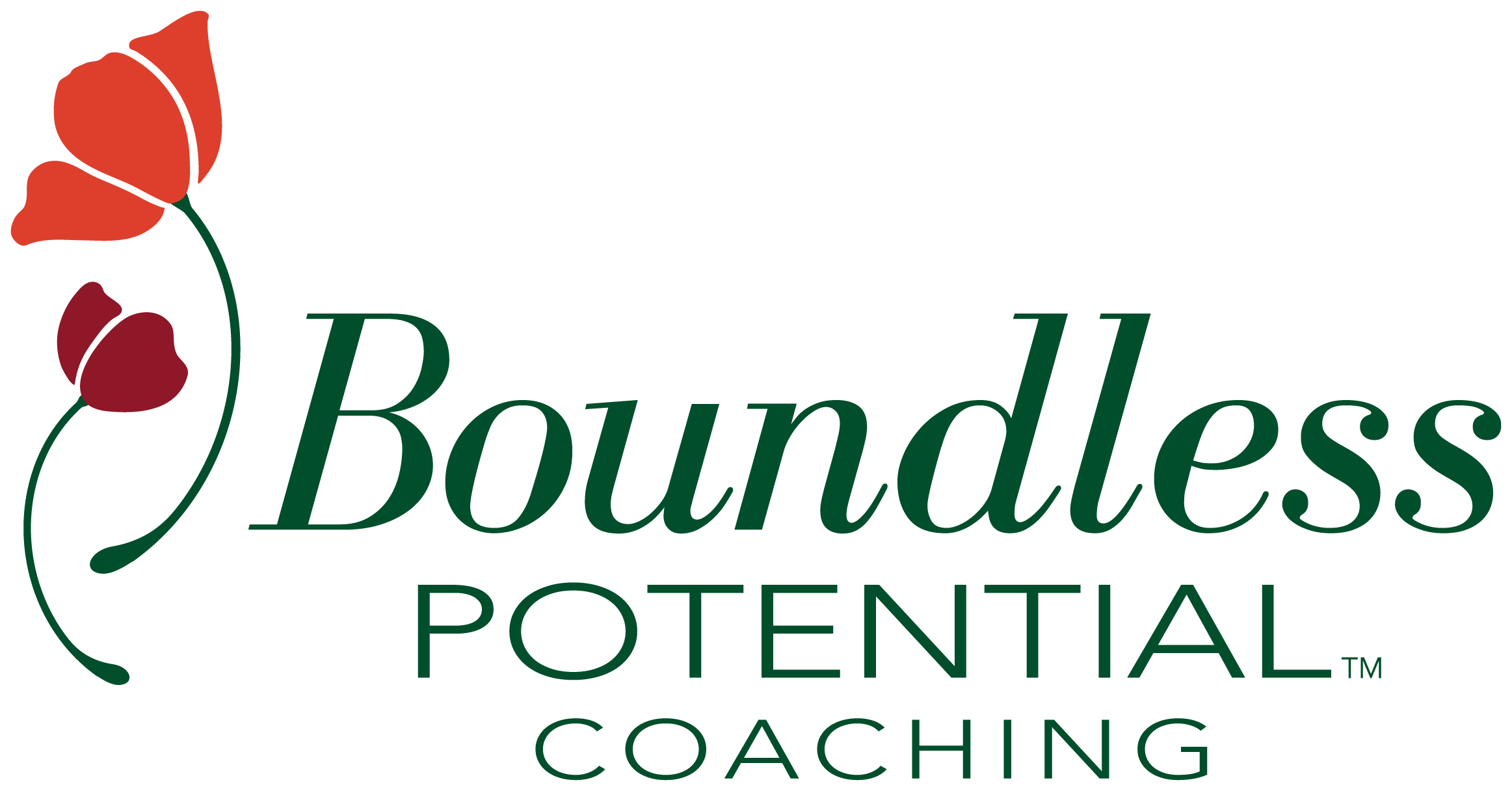Discover how to move through mental blocks like overwhelm, Imposter Syndrome, and a loud inner critic — without burning out.
Even the most capable professionals hit mental blocks. It’s not whether we have them — it’s whether we notice them and know how to move through them.
Recently, I ran a poll asking, “What’s your biggest mental block right now?”
Here’s what professionals said:

Clearly, even high-performing professionals experience moments when their minds feel “stuck.”
According to the American Psychological Association, mental blocks are temporary psychological obstacles that interfere with performance — often triggered by anxiety, overthinking, or perfectionism.
This article explores how to move through them step by step:
Awareness → Understanding → Movement.
1️⃣ Awareness — Noticing the Block Without Judgment
Mental blocks often hide behind busyness. You’re still producing, still performing — but something feels off.
Even Olympic champion Simone Biles admitted to experiencing “the twisties,” a mental block that made her step back during the Tokyo Games. Her decision was not a failure; it was awareness in action.
“Awareness isn’t analysis — it’s attention.”
Ask yourself:
- Am I avoiding certain projects or people?
- Am I constantly resisting work that used to excite me?
- Am I overanalyzing every move before acting?
A Harvard Business Review study found that 62% of professionals ignore early signs of burnout until performance drops.
Awareness means pausing long enough to notice the patterns — without judgment.
Mini takeaway: You can’t move through what you don’t face.
2️⃣ Understanding — What the Block Is Trying to Tell You
Once you’ve named your block, it’s time to interpret its message.
Every mental block is feedback — your brain’s signal that something needs attention, not avoidance.
Worrying What Others Think (38.9%)
Pop icon Lady Gaga once said she lost herself trying to please others:
“I was so worried about being liked, I stopped liking myself.”
This block stems from over-valuing approval.
🧩 Message: Authenticity matters more than applause.
The Louder Inner Critic (27.9%)
Self-criticism looks like excellence but feels like paralysis.
A Journal of Psychological Science study found self-critical perfectionism strongly predicts chronic stress.
🧩 Message: Your standards aren’t the problem — your self-talk is.
Overwhelm (16.7%)
Bill Gates famously takes “Think Weeks” — stepping away to regain direction and mental composure..
Many professionals admit their biggest barrier to clarity is internal, not workload-related.
🧩 Message: You don’t need more time — you need fewer priorities.
Imposter Syndrome (16.7%)
This block shows up when success outpaces self-belief. You achieve something meaningful yet question if you truly deserve it.
A 2022 KPMG study found 75% of executive women experience imposter feelings.
🧩 Message: You belong here — even if your confidence hasn’t caught up.
Mini takeaway: Every block has a message. Listen long enough to translate it.
3️⃣ Movement — Gentle, Practical Ways to Move Through
Once you’ve noticed and understood your block, progress begins through small, intentional movement.
Not hustling harder — but partnering with yourself.
Naming emotions reduces their intensity and restores cognitive control.
So start simple:
Inner Critic
Write what you’d tell a trusted peer — then tell yourself the same thing.
“You’ve handled tougher projects before. Asking for help shows strength, not weakness.”
👉 Swap “I should have” for “Next time, I will…”
Overwhelm
Choose one essential task for the next 48 hours and define “done.”
“I’ll finish the executive summary — not the entire report.”
HBR research shows micro-recoveries boost focus by ≈30%.
👉 Focus on completion, not perfection.
Imposter Syndrome
Keep a “wins list.” Facts recalibrate feelings.
Remind yourself of real results — projects completed, clients helped, goals achieved — and revisit it often.
👉 Confidence follows proof — not the other way around.
Worrying What Others Think
Shift your focus from impression to impact.
Ask, “Did this help, add value, or move something forward?” instead of “Did they like it?”
👉 Measure the day by authenticity, not applause.
“Movement doesn’t mean pushing harder; it means partnering with yourself.”
Mini takeaway: Momentum grows when compassion leads the effort.
Conclusion
Even the most capable professionals hit mental blocks. The difference isn’t whether we have them — it’s whether we notice, understand, and move through them.
Ask yourself:
- Which of these blocks shows up most often for me?
- What might it be trying to tell me?
- What’s one small, specific action I can take today?
Because getting unstuck isn’t about doing more.
It’s about thinking lighter, choosing wiser, and changing perspective on mental blocks.
*(Credits to Canva Pro images for initial image)

